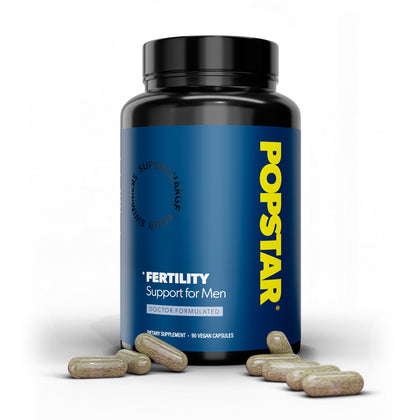

Fertility is a topic of immense importance for individuals and couples planning to start a family. While discussions often revolve around female reproductive health, the role of male fertility, particularly concerning sperm health, is equally significant. One crucial aspect that is gaining attention is the impact of age on sperm health. This article explores the intricate relationship between age and sperm health, shedding light on how age affects male fertility.
The Biological Clock: Understanding Male Age and Sperm Health
Just as women face the biological clock phenomenon, men are not exempt from age-related changes affecting fertility. While men produce sperm throughout their lives, the quality and quantity of sperm can be influenced by age. Studies have shown that as men age, there is a decline in sperm quality, characterized by reduced sperm motility (movement) and an increase in DNA damage within sperm cells. These changes can significantly impact fertility and increase the likelihood of infertility issues.
Age and Sperm Count
One primary parameter to assess male fertility is sperm count, which refers to the number of sperm present in a semen sample. Research indicates that sperm count tends to decrease with age. A study published in the journal Human Reproduction found that men over 40 had lower sperm counts compared to their younger counterparts. The decline in sperm count with age is attributed to various factors, including hormonal changes, oxidative stress, and lifestyle factors, such as smoking and excessive alcohol consumption.

Sperm Quality and DNA Integrity
Apart from sperm count, sperm quality is another crucial determinant of male fertility. Sperm quality encompasses factors such as sperm motility, morphology (shape), and DNA integrity. Advanced paternal age has been associated with an increased incidence of sperm DNA damage, which can compromise fertility and increase the risk of pregnancy complications, such as miscarriage and genetic abnormalities in offspring. DNA damage in sperm cells is thought to result from cumulative exposure to environmental factors, oxidative stress, and impaired DNA repair mechanisms as men age.
Impact of Lifestyle Factors
While age itself plays a significant role in sperm health, lifestyle factors can exacerbate or mitigate age-related changes. Unhealthy lifestyle choices, such as smoking, excessive alcohol consumption, poor diet, and sedentary behavior, have been linked to decreased sperm quality and fertility issues. Conversely, adopting a healthy lifestyle, including regular exercise, a balanced diet rich in antioxidants, using supplements like Popstar Fertility, and avoiding harmful habits, can help maintain optimal sperm health, even as men age.
Addressing Age-Related Fertility Concerns
For individuals and couples navigating age-related fertility concerns, seeking timely medical advice and intervention is paramount. Fertility specialists can conduct comprehensive evaluations to assess sperm health and offer personalized treatment options, including assisted reproductive techniques such as in vitro fertilization (IVF) and intracytoplasmic sperm injection (ICSI). Additionally, lifestyle modifications and dietary supplements may help improve sperm quality and enhance overall fertility outcomes.
Age is a critical factor influencing sperm health and male fertility. While men may produce sperm throughout their lives, advanced paternal age is associated with a decline in sperm quality and an increased risk of fertility issues. Understanding the complex interplay between age, lifestyle factors, and sperm health is essential for individuals and couples planning to conceive. By adopting a proactive approach, making healthy lifestyle choices, and seeking timely medical guidance, men can optimize their fertility potential and increase their chances of achieving successful pregnancy outcomes.





